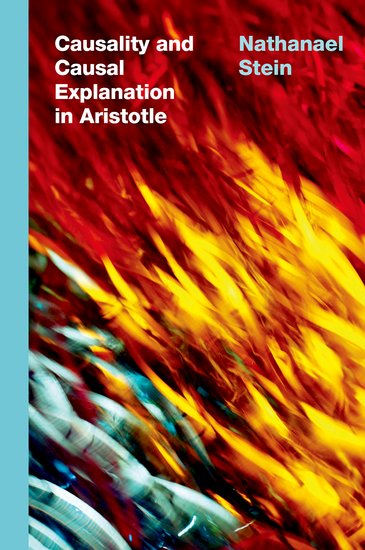Causality and Causal Explanation in Aristotle

Aristotle's writings about causality and its relation to natural science are at the heart of his philosophical project, and at the origin of a 2,000-year history of inquiry into these topics. Yet for all the work done on various aspects of his thought, there has been no full-length philosophical study of his theory of causality, and some basic questions about it remain under-examined. For example, it is unclear, from what he and his commentators have said, (a) how Aristotle answers the main philosophical questions about causality to which he thinks his predecessors' answers are flawed, and (b) how his answers bear on the main questions we confront in thinking about causality in general, such that those answers could be usefully critiqued, developed, and compared with others.
Nathanael Stein's book addresses these two questions. It is not a survey of Aristotle's claims, but rather focuses on a set of key conceptual, metaphysical, and epistemological questions that are important both for understanding Aristotle's responses to his predecessors and for understanding causality in general. The book thus provides the kind of philosophical engagement with Aristotle that has proven so fruitful in other domains, such as ethics and metaphysics. It also aims to contribute to a more accurate understanding of the differences between ancient and modern approaches to the natural world.
This book is meant for anyone interested in philosophical theories of causation and explanation and their history, as well as those who have read Aristotle's thoughts on the topic of causality and come away wondering what it all really adds up to, and how we might engage with it.

